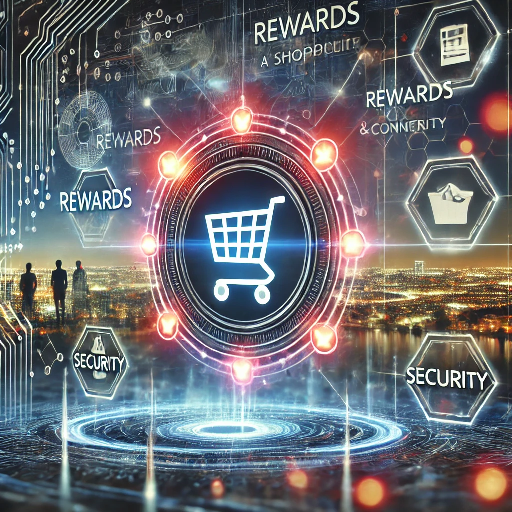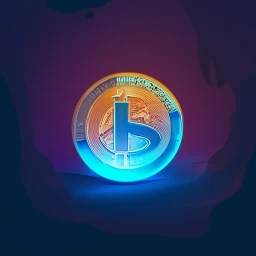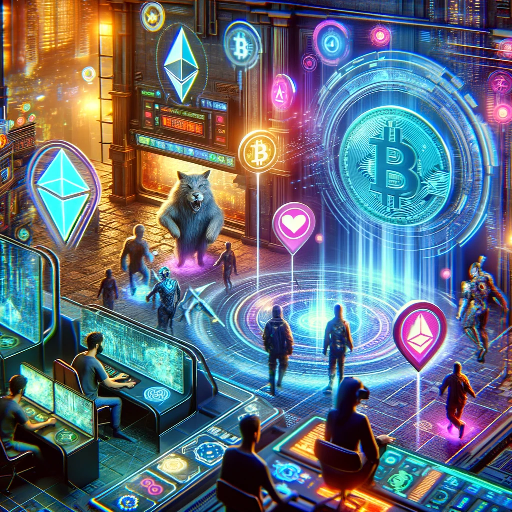Loyalty tokens are transforming the way businesses interact with their customers, creating unparalleled opportunities for engagement and long-term relationships. These digital assets, often leveraging blockchain technology, provide a seamless, transparent, and rewarding experience for both businesses and consumers. As companies strive to enhance customer satisfaction, loyalty tokens emerge as a powerful tool to incentivize and retain users.
What Are Loyalty Tokens?
Loyalty tokens are a type of digital reward that businesses offer to their customers for engaging with their brand. Unlike traditional loyalty programs that rely on points, cards, or physical coupons, loyalty tokens operate in a digital ecosystem, often backed by blockchain. They represent a more secure, versatile, and customer-friendly approach to incentivization.
Key Features of Loyalty Tokens
- Digital and Transparent: Since loyalty tokens are frequently based on blockchain, every transaction is transparent and immutable.
- Interoperability: Unlike traditional points, which are confined to specific programs, loyalty tokens can often be used across multiple brands and ecosystems.
- Ownership: Customers own their loyalty tokens, giving them the freedom to transfer, trade, or redeem as they see fit.
- Cost Efficiency: For businesses, loyalty tokens reduce the administrative overhead associated with traditional programs.
The Evolution of Loyalty Programs
Traditional loyalty programs have long been a staple in customer retention strategies. From the punch cards of the 20th century to digital points systems, businesses have always sought innovative ways to reward repeat customers. However, these systems often suffer from limitations such as lack of flexibility, high operational costs, and low customer engagement.
Loyalty tokens address these challenges by introducing a more dynamic and engaging model. They leverage modern technology to offer benefits that traditional programs cannot match, such as enhanced security, reduced fraud, and global accessibility.
How Loyalty Tokens Differ from Traditional Points
- Global Reach: Tokens can be earned and redeemed across international borders, unlike points, which are often region-specific.
- Liquidity: Loyalty tokens can be traded on digital marketplaces, giving them real monetary value.
- Flexibility: Customers can use loyalty tokens in various ways, including purchasing products, accessing exclusive services, or even donating to charitable causes.
Benefits of Loyalty Tokens for Businesses
Implementing loyalty tokens offers a plethora of advantages for businesses, enhancing both their operational efficiency and customer relationships.
Enhanced Customer Engagement
Loyalty tokens provide a compelling reason for customers to stay connected with a brand. By gamifying the experience and offering meaningful rewards, businesses can foster deeper engagement.
Data-Driven Insights
Blockchain-based loyalty systems record every transaction, giving businesses access to rich data on customer behavior. This information can be analyzed to create more personalized and effective marketing strategies.
Cost Savings of Loyalty Tokens
Traditional loyalty programs often involve significant administrative costs. Loyalty tokens, however, streamline the process, reducing expenses associated with issuance, redemption, and fraud prevention.
Increased Brand Loyalty
Customers who earn and own loyalty tokens are more likely to develop a long-term relationship with the brand. The tangible value of tokens makes customers feel appreciated and valued.
Benefits of Loyalty Tokens for Customers
While businesses gain operational efficiencies and valuable insights, customers also reap numerous rewards.
Ownership and Flexibility of Loyalty Tokens
With loyalty tokens, customers gain true ownership of their rewards. Unlike points that may expire or be restricted to specific uses, tokens offer unmatched flexibility.
Transparency and Security of Loyalty Tokens
The blockchain technology behind loyalty tokens ensures that transactions are secure and transparent. Customers can trust the system, knowing their rewards are safe and verifiable.
Greater Value of Loyalty Tokens
Since loyalty tokens can often be traded or exchanged, they carry intrinsic value beyond the issuing brand’s ecosystem. Customers benefit from the ability to use tokens as they see fit, including converting them into other currencies or assets.
Examples of Successful Loyalty Token Implementations
Several forward-thinking companies have already integrated loyalty tokens into their customer engagement strategies. These examples highlight the versatility and potential of this innovative approach.
Starbucks Odyssey
Starbucks’ Odyssey program leverages blockchain to offer unique experiences to its customers. Participants earn tokens by engaging in various activities, which can then be redeemed for exclusive rewards, such as virtual collectibles or limited-edition merchandise.
Rakuten Super Points
While not blockchain-based, Rakuten’s program demonstrates how loyalty tokens can operate in a versatile and customer-centric manner. Members earn points for shopping, which can be used across a wide array of products and services, highlighting the potential of a tokenized system.
Crypto-Back Loyalty Programs
Companies like Lolli offer customers Bitcoin rewards for online shopping. This approach not only incentivizes purchases but also introduces users to cryptocurrency, broadening their financial literacy and engagement.
Challenges and Considerations in Implementing Loyalty Tokens
While the benefits are clear, businesses should also be mindful of potential challenges when implementing loyalty token systems.
Regulatory Compliance
Depending on the region, loyalty tokens may be subject to regulations governing digital assets. Businesses must ensure they comply with all applicable laws to avoid legal complications.
Technical Complexity
Building a blockchain-based loyalty system requires significant technical expertise. Businesses may need to invest in skilled developers or partner with experienced blockchain companies.
Customer Adoption
Introducing a new loyalty model can be met with resistance from customers accustomed to traditional programs. Clear communication and education are key to driving adoption.
The Future of Loyalty Tokens
As technology continues to evolve, loyalty tokens are poised to play a central role in customer engagement. Emerging trends such as the metaverse, decentralized finance (DeFi), and non-fungible tokens (NFTs) will further expand the possibilities.
Integration with the Metaverse
Loyalty tokens can enhance customer experiences in virtual worlds, offering rewards for activities such as attending virtual events, exploring branded spaces, or participating in gamified challenges.
Cross-Brand Ecosystems
Imagine earning loyalty tokens from one brand and redeeming them across a network of partners. Such interoperability will redefine the concept of customer loyalty, encouraging cross-brand collaborations.
Increased Personalization
With advancements in artificial intelligence and machine learning, businesses can use loyalty tokens to deliver hyper-personalized rewards and recommendations, enhancing customer satisfaction and retention.
Conclusion of Loyalty Tokens
Loyalty tokens represent a significant leap forward in customer engagement, blending the benefits of modern technology with timeless principles of rewarding loyalty. By adopting this innovative approach, businesses can foster deeper relationships with their customers, reduce operational costs, and gain valuable insights.
For customers, loyalty tokens offer unparalleled flexibility, transparency, and value. As the world embraces digital transformation, these tokens will undoubtedly become a cornerstone of customer engagement strategies, driving mutual benefits for businesses and their audiences.

















